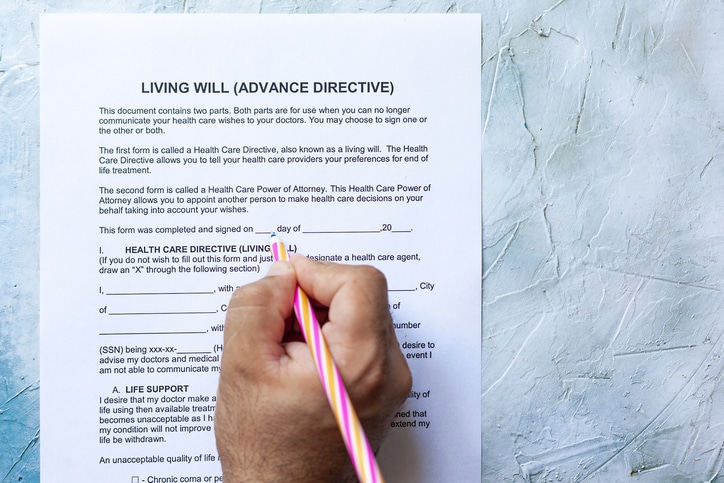When it comes to estate planning, many people focus on wills, trusts, and asset distribution but overlook critical documents related to healthcare decisions. Two essential tools—healthcare directives and living wills—help ensure your medical preferences are respected if you’re unable to make decisions for yourself. While they are related, these documents serve different purposes, and understanding the distinction can help you decide whether you need both.
At Steslicki & Ghannam, our Plymouth estate planning attorneys are here to guide Michigan residents through the complexities of estate planning, including healthcare documents. Let’s explore the differences between healthcare directives and living wills and why having both may be beneficial.

What is a Healthcare Directive?
A healthcare directive is a broad term that refers to a legal document outlining your medical preferences and appointing a trusted individual to make healthcare decisions on your behalf if you’re unable to do so. In Michigan, this document is commonly referred to as a durable power of attorney for healthcare.
Key features of a healthcare directive include:
- Designation of a Patient Advocate: If you become incapacitated, you appoint someone (a patient advocate) to make medical decisions for you.This person is empowered to communicate with doctors, access medical records, and consent to or refuse treatment.
- Comprehensive Medical Preferences: The directive can outline your wishes for various scenarios, including long-term care, end-of-life decisions, and experimental treatments.
What is a Living Will?
A living will is a type of advance directive that explicitly addresses your preferences for end-of-life care.
This document becomes relevant when:
- You are terminally ill.
- You are in a persistent vegetative state.
- You cannot communicate your wishes regarding life-sustaining treatments.
A living will typically focuses on issues such as:
- Whether to use mechanical ventilation.
- Decisions about tube feeding and hydration.
- Resuscitation efforts, such as CPR or defibrillation.
- Palliative care and pain management.
Unlike a healthcare directive, a living will does not appoint a decision-maker. Instead, it provides a written record of your instructions for medical providers and loved ones.
Why You Might Need Both
While healthcare directives and living wills have distinct purposes, having both provides comprehensive coverage for your medical needs:
- Clarity in Complex Situations: A living will ensures your end-of-life wishes are respected, while a healthcare directive allows your patient advocate to make decisions in situations not covered by the living will.
- Avoiding Family Disputes: Clear documentation reduces the risk of conflicts among family members regarding your medical care.
- Complying with Michigan Laws: Living wills are not legally binding in Michigan but can serve as valuable guidance for your patient advocate. Having both documents ensures your intentions are clear and enforceable.
How to Get Started
Drafting healthcare directives and living wills requires careful consideration of your values, medical preferences, and trusted decision-makers. Working with an experienced estate planning attorney ensures these documents are correctly prepared, legally compliant, and tailored to your needs.
Let Steslicki & Ghannam Help You Plan Ahead
At Steslicki & Ghannam, we understand that planning for medical contingencies is deeply personal. Our Plymouth estate planning attorneys are here to guide you through the process, ensuring your healthcare directives and living will reflect your wishes and provide peace of mind for you and your loved ones.
Contact us today for a consultation and take the first step toward securing your future. With proper planning, you can rest assured that your healthcare choices will be honored when they matter most.









